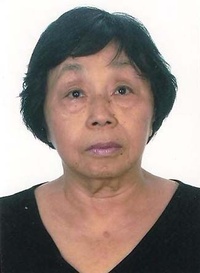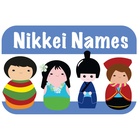I think Japanese names sound strange to Brazilian ears. Many of them are also related to the way they were recorded.
When researching the arrival of my grandfather, Seiji Shimoide, in Brazilian lands, I discovered that whoever translated (a person who can read Japanese), read the ideograms as being SHIMODE. I know another Shimoide family, which is not related to us (they came from Hokkaido) and their name should also be translated as Shimode.
Regarding my family directly, we lived in Minas Gerais and, to avoid wrong pronunciation, my father registered my brothers, whose names in Japanese would be Reiko and Ryo, as Leiko and Lyo. He changed the “R” to “L”.
In my case, in particular, as I was always called Mitikô at home, I was bullied at school (1945), being called “Mitikô poop”. When I was baptized in the Catholic church, my godfather didn’t like “Mitikô” pronounced like that and changed it to “Mitikó”. When I came to work in Rio and lived at my godfather's house in the early days, I then became Mitikó.
I am radically against the wrong pronunciation of Brazilians who pass Mitiko to Mitiku. And I always justify why. In this justification I explain that the name Mary is read Meiri, Lourdes is read Lurdes, Washington is read Uashinton, but Walter is read Valter, Newton is read Niuton and so on. So why Mitiku?
As I am against the suffix “ko”, which is a characteristic of female names in vogue in the 30s, 40s and 50s, I chose to put the ending “MI” in my daughters’ names.
In fact, there are four suffixes for Japanese female names: “ko”, “mi”, “yo” and “e”. And to avoid being asked if the child was female or male in the case of the Japanese name, I chose to include the Brazilian name.
And when choosing this Brazilian name, I looked for those that were easy to pronounce for my parents. That is, names with consonant groups.
My daughter decided that her children would also have a Japanese name and surname. So they have four names. This was a personal decision.
In Brazil, unlike Spanish-speaking countries, it is not common to use the maternal family's surname. Therefore, including it or not is your free choice at the time of registration. Likewise, Brazilian legislation does not require the adoption of a Portuguese-language name. Thus, the vast majority have just one name: Japanese. And, as I said before, this name is often spelled differently. I have namesake Mitiko spelled Michiko and Mitico.
The trend, I believe, is to exclude, over time, the Japanese name. However, the surname remains. As people of Italian and German descent do, for example.
I have a Brazilian neighbor, of Portuguese descent, who is simply called SAYONARA!!!
* This story was written by one of the participants of the "Nikkei Names" Workshop, held on August 26, 2014 at Bunkyo, in São Paulo .
© 2014 Mitikó Une




